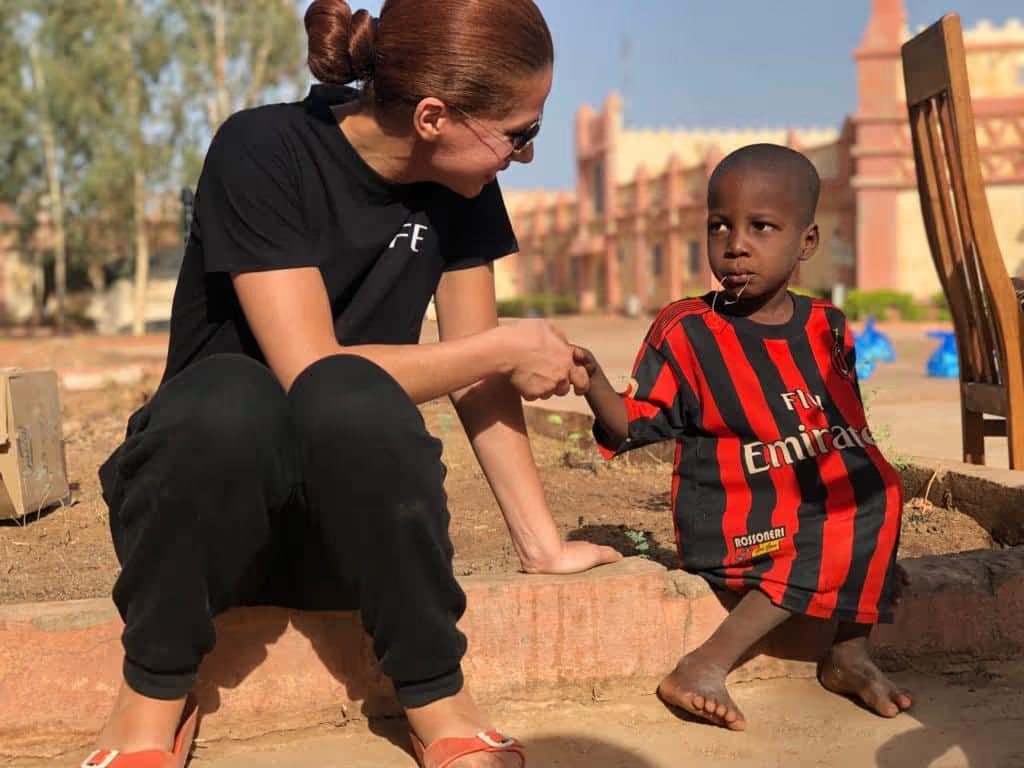How can we fight hunger in the world?

Hunger knows no borders; it affects women, men and children in every corner of the world. The right to food is a fundamental human right recognized in 1948 in the Universal Declaration of Human Rights. However, hunger in the world continues to increase tirelessly. Fighting hunger and ensuring food security in the world is an absolute emergency and an international priority. Eradicating hunger is one of the major challenges facing the world. This is the second objective of Sustainable Development Goals (SDGs) aiming to achieve “zero hunger” by 2030. We are still a long way from it...

Hunger in the world in a few figures
1 person dies of hunger every 4 seconds in the world. A sad observation revealed by more than 230 NGOs aiming to challenge international leaders about the urgency of the situation.
Even today, no less than 828 million people still suffer from hunger, or 1 in 10 people, estimates the UN. In 2021, nearly 2.3 billion people around the world were in a situation of moderate or severe food insecurity. In the same year, 924 million people were seriously food insecure. Hunger spares no one.
Among its victims, children are on the front line. Vulnerable, they are among the most affected by famine. According to FAO, 45 million children under the age of 5 suffer from wasting, the most visible and deadly form of malnutrition. Indeed, it can increase the risk of death by 12.
According to the UN, in 2021, women represented 60% of undernourished people in the world. Indeed, women are particularly exposed to hunger, more so than men. Often forced to stay at home to do household chores, they therefore do not always have access to sources of income and food. In some countries, some cultures, because they are women, they even face food deprivation.
What are the solutions to fight hunger in the world?
To eradicate the scourge of hunger, it is urgent and essential to take concrete and sustainable measures. Some ideas for thought:
Sustainable agriculture to fight hunger in the world
Transforming the current global food system towards a fairer and more sustainable system now seems inevitable. While climate disasters cause agricultural losses and are one of the causes of hunger in the world, our agro-industrial model also fuels hunger. In fact, it produces nearly a third of greenhouse gas emissions, most of which are nitrous oxide and methane. Two powerful greenhouse gases! The current system degrades and depletes land, thus reducing the yield and income of producers. The current system, which focuses on productivity and profit, is also causing devastating competition for family farms. Small farms have to deal with large industrial farms. Family farming is the most common form of agriculture in the world. According to the FAO, they represent 90% of the world's farms and produce nearly 80% of the world's food. Overwhelmed by the market and deprived of fair remuneration, operators are struggling to do well. They find themselves plunged into poverty, and are therefore affected by hunger.
Agroecology is a winning agricultural alternative to fight against hunger while respecting the environment. It is based on several principles such as crop diversification to avoid soil exhaustion, minimize the use of fertilizers and pesticides harmful to water quality, or even respect for biodiversity through agroforestry. Agroecology is also a fairer remuneration system, which ensures a livelihood for farmers, thus guaranteeing the right to food for all.
Empowering women to fight global hunger

Empowering women can have a significant impact on the fight against hunger in the world. As surprising as it may seem, gender inequalities and food insecurity are closely linked. Because of discrimination based on their gender, women represent the majority of people affected by hunger. In 2021, according to the UN, 31.9% of women in the world were moderately or severely food insecure, compared to 27.6% of men. A gap that is constantly widening. Depending on the country, women and girls do not always have the same rights as men. They are the first to suffer from hunger. However, women are essential for food security. It is therefore essential to give them the same opportunities as men to fight against hunger. Women should be able to benefit from access to education, to enable them to develop skills and independence. Indeed, through education, women can get well-paid jobs, giving them the means to meet the food needs of their families.
In addition to carrying out household tasks such as preparing meals and managing food, they are also producers of a large part of the food. Indeed, globally, nearly a third of women work in agriculture. They represent around 70% of the agricultural workforce in Africa. Work that is rarely paid because it is often carried out on a family farm. If they are paid, they will be more likely than men to have very low-paid jobs. In addition to wage problems, women do not have access to land equal to that of men. They are rarely owners, they still represent less than 15%. It is therefore important to ensure that women have access to property and resources. When they own their own land, they are better able to grow food for their families and thus participate in the local economy. According to FAO, by offering women farmers the same access to resources as men, hunger could be reduced by 12 to 17%.
Our actions to fight hunger in the world
Sending your child to school requires big sacrifices that not all parents can afford: finance school supplies, deprive yourself of essential help at home... Many families therefore give up sending their children to school. Since 2009, we have been working around the world for LIFE the food safety of children and their access to education. By setting up school canteens in schools, we are fighting hunger by offering complete and balanced meals to each child. We not only make it possible to feed the children, but also to bring them back to school. In Togo, for example, the creation of a school canteen has increased the success rate for the Certificate of Studies, the end-of-primary exam, from 38% to 100%!
We also deploy food support programs in twenty countries. Throughout the year, we distribute food packages and hot meals. In addition, we support local populations in setting up income-generating activities, thus promoting their empowerment.



.avif)





